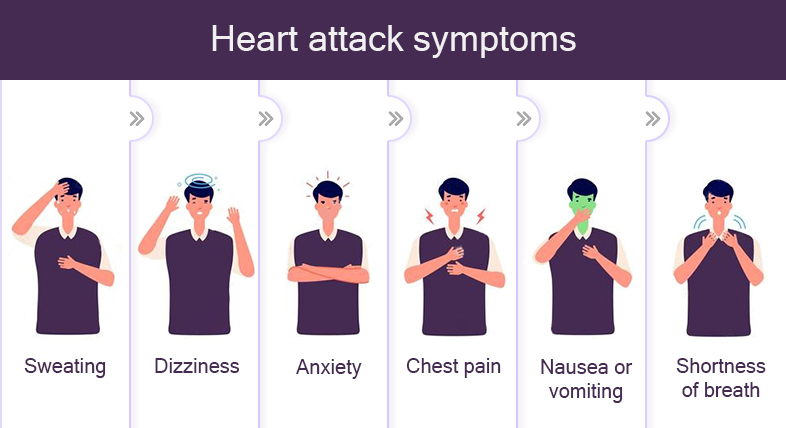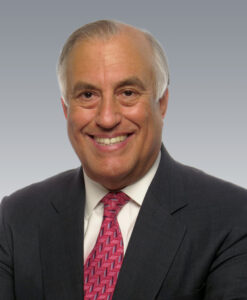
A heart attack is obviously a dangerous occurrence, yet experts say that almost half of those who experience a heart attack don’t realize that they just suffered from one. This is an unusual finding, especially when you think about the dramatic scenes we all imagine or have seen when a person had a heart attack. Anyone can easily call to mind some of the symptoms of a heart attack because heart disease is the leading cause of death in the developed world.
In research conducted by the Atherosclerosis Risk in Communities (ARIC) from 1987 to 2013, 9,500 middle-aged men and women were studied, and 7.4% of them had experienced a heart attack, 703. Among those who had a heart attack, only 386 noticed symptoms of a heart attack, while 317 did not. The study showed that up to 45% of them did not realize they had a heart attack!
Risk Factors of a Heart Attack
Certain people have an increased risk of a heart attack than others, regardless if it is a silent heart attack or a dramatic heart attack. Common heart attack risk factors include:
- A family history of heart attacks and heart diseases;
- Being obese or overweight;
- Smoking;
- High levels of LDL cholesterol and low levels of HDL cholesterol;
- High levels of triglycerides;
- Type 2 diabetes;
- Leading a sedentary life, etc.
How Can One Not Recognize a Heart Attack?
As it turns out, a person can have a silent heart attack, which can either have very minimal symptoms that are difficult to associate with a heart attack or none at all. Despite the lack of symptoms, the cause of the heart attack is still the same.
As the blood vessels get clogged by plaque due to cholesterol deposits, the pressure within the vessels will get higher. A piece of the plaque can then rupture, leading to the formation of a blood clot. The clot may then temporarily block blood flow in the vessel, preventing blood from reaching a section of the heart. This causes damage to the heart muscles and even scarring. Normally, this would present with:
- chest pain;
- shortness of breath;
- weakness around the body;
- light-headedness.
However, with a silent heart attack, the symptoms are subtle and easily attributed to other medical conditions. Some symptoms include:
- flu symptoms;
- indigestion;
- prolonged fatigue without an obvious cause;
- discomfort in the chest, upper back, arms, or jaw.
As you can see, these symptoms can very easily be attributed to other causes or even misdiagnosed by a doctor.
Read more: Gas Pain in Your Chest: Is It a Heart Attack?
How Can You Tell That You Had a Silent Heart Attack?
With the symptoms being so subtle, only an echocardiogram (ECG) can show the scarring and damage to the heart muscles. As you rarely get an ECG without symptoms, most people may only realize their heart attack when diagnosing another condition. For example, someone may get a routine ECG before major surgery, during which the doctors realize the person had a heart attack in the past. Worse still, ECGs are not done on healthy people, making it difficult to diagnose.
Is It Dangerous?
Yes, indeed. Even though there aren’t any obvious symptoms, the damage to the heart muscles is just as real as the recognizable kind of heart attack – which is why it can be seen during an ECG. What makes silent heart attacks more dangerous is that they decrease chances of detection, thus keeping the individual from taking any measures to protect themselves from any future heart attacks. Hopefully, there will be better screening methods for heart attacks, but for now, anyone experiencing any of the symptoms should get an ECG performed. The older a person gets, the greater are the chances of having a silent heart attack.
The most important thing to keep yourself healthy and keep your heart in good health is to lead a healthy and active life. First of all your diet should be healthy consisting of many fruits and vegetables. Second, you need to lead an active life meaning that you need to be physically active and not just sit in front of a TV or computer. Third, you need to avoid any risk factors that you could have, such as stop smoking, don’t drink too much alcohol, lose those extra pounds, etc.

Dr. Steven Reisman is an internationally recognized cardiologist and heart specialist. He is a member of the American College of Cardiology, American Heart Association, and a founding member of the American Society of Nuclear Cardiology.
Dr. Reisman has presented original research findings for the early detection of "high risk" heart disease and severe coronary artery disease at the annual meetings of both the American College of Cardiology and the American Heart Association. Dr. Reisman was part of a group of doctors with the Food and Drug Administration who evaluated the dipyridamole thallium testing technique before the FDA approved it.
Dr. Steven Reisman's academic appointments include Assistant Professor of Medicine at the University of California and Assistant Professor at SUNY. Hospital appointments include the Director of Nuclear Cardiology at the Long Island College Hospital.



